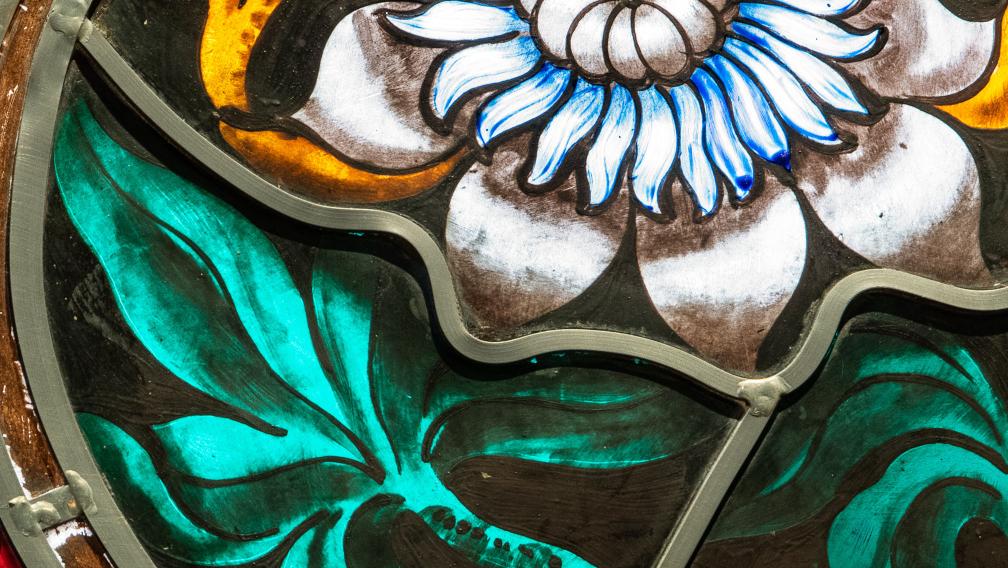Five Ways Into Sunday’s Scripture: Life in Christ

As Jesus walked along, he saw a man blind from birth. His disciples asked him, “Rabbi, who sinned, this man or his parents, that he was born blind?” Jesus answered, “Neither this man nor his parents sinned; he was born blind so that God’s works might be revealed in him. We must work the works of him who sent me while it is day; night is coming when no one can work. As long as I am in the world, I am the light of the world.” When he had said this, he spat on the ground and made mud with the saliva and spread the mud on the man’s eyes, saying to him, “Go, wash in the pool of Siloam” (which means Sent). Then he went and washed and came back able to see. The neighbors and those who had seen him before as a beggar began to ask, “Is this not the man who used to sit and beg?” Some were saying, “It is he.” Others were saying, “No, but it is someone like him.” He kept saying, “I am the man.” But they kept asking him, “Then how were your eyes opened?” He answered, “The man called Jesus made mud, spread it on my eyes, and said to me, ‘Go to Siloam and wash.’ Then I went and washed and received my sight.” They said to him, “Where is he?” He said, “I do not know.”
John 9:1–12
What does life in Christ mean? Sundays’s Gospel reading offers a metaphor and a story. Jesus chooses a man born blind and gives him sight. The man knows profoundly who Jesus is, gives his testimony, and confesses his faith in Jesus.
Life in Christ can be as radical as a man seeing the world for the first time. But life in Christ also leads to conflict with those who only claim to see.
When we seek to do God’s will, we can expect to meet with resistance, rejection, and punishment; the Christians in St. John’s community knew this well. Being a disciple today requires prophetic action, discipline, and endurance. True life in Christ includes cultivating a deep desire for the capacity to see as God sees.
—Kathy Bozzuti-Jones
THEOLOGY
A commentary on this passage from SALT: “This is a story about many sorts of not-seeing — and at the end of the day, the question is whether we, the readers and listeners to this story, will overlook its central meanings.”
And commentary from Patheos walks through each scene of this passage “bristling with conflict.”
SOCIAL JUSTICE
From Disability Studies Quarterly: “The use of the metaphor of blindness employed in John 9 can reinforce the exclusion of persons with disabilities, as well as anti-Jewish and anti-Semitic attitudes.”
Keith Dow asks: what is spiritual blindness? “It’s true that at times the Bible uses blindness to depict ignorance, a practice that continues today but is either just tolerated or is upsetting to the disability community.”
POETRY
“Start with your own questions. Give up on other people’s questions.” Lines from David Whyte’s poem “Start Close In.”
SPIRITUALITY
From Steve Garnaas-Holmes: “Stand by your newness even when neighbors don’t like it or don’t recognize you.”
MUSIC
Jessye Norman singing “Amazing Grace.”
And a history of the famous hymn and its author, John Newton.
Coming Soon
This Sunday at 10am, the Rev. Kristin Miles, Priest and Director for Pastoral Care and Community, joins the Discovery community to discuss Conflict, Forgiveness, and Unity.
This Sunday at 1pm, join a Trinity Talks conversation between environmental activist and artist Maya Lin and the Rev. Michael Bird about our relationship to nature, the current climate crisis, and envisioning new ways to see a different outcome for us and our planet.





